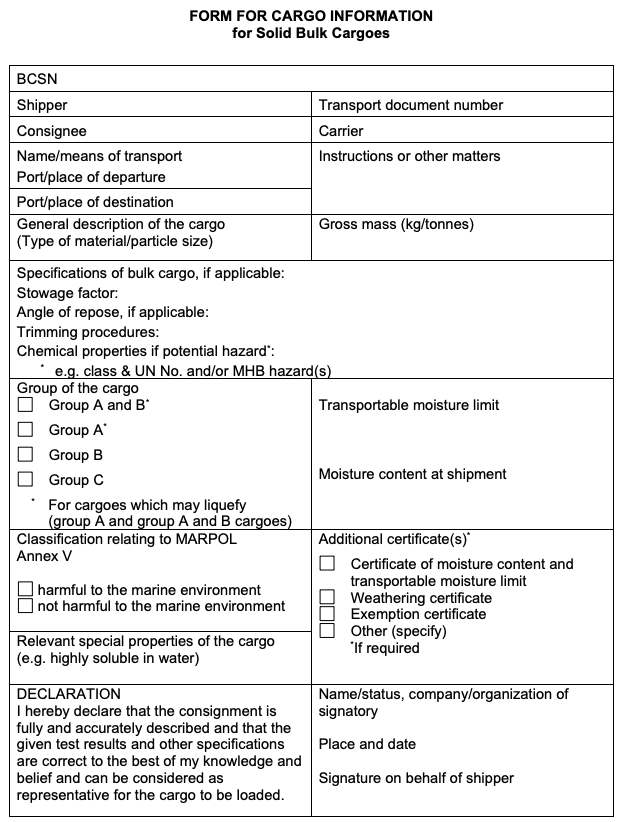IMO “IMSBC code” and shipping of PEAT MOSS
Carrying solid bulk cargoes involves serious risks, which must be managed carefully to safeguard the crew and the ship. These risks include reduced ship stability, and even capsizing, due to cargo liquefaction; fire or explosion due to chemical hazards; and damage to ship structures due to poor loading procedures.
The main legislation governing safe carriage of solid bulk cargoes is the International Maritime Solid Bulk Cargoes (IMSBC) Code, which became mandatory on January 1, 2011, under the SOLAS Convention.
IMO “IMSBC code” requires the shipper to provide the master or his representative with appropriate information on the cargo sufficiently in advance of loading to enable the precautions which may be necessary for proper stowage and safe carriage of the cargo to be put into effect.
Cargo information shall be confirmed in writing and be accompanied by appropriate shipping documents prior to loading.
Information provided by the shipper shall be accompanied by a declaration. An example of a cargo declaration form:
As PEAT MOSS is listed as “Group A and B “cargo, which may liquefy if shipped at a moisture content in excess of its transportable moisture limit (TML), IMO “IMSBC code” requires TML certificate to be presented prior cargo can be accepted for carriage.

